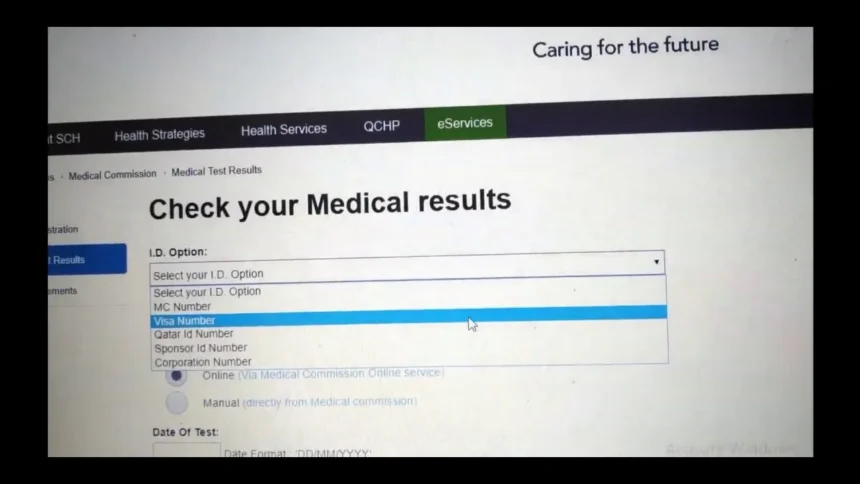1. Introduction: The Mystery of “kerkt”
In the digital age, names, handles, or terms emerge rapidly—sometimes gaining traction before public documentation catches up. “kerkt” is one such name: it appears occasionally in searches or as a query, yet no clear, authoritative source defines what it is.
This article explores possible identities or uses of kerkt, how to investigate it, and what steps to take to turn it from an obscure name into a documented entity. If you want this to rank on Google first, the best approach is combining speculation with methodical research and then updating as facts emerge.
2. Possible Interpretations of “kerkt”
When encountering an unfamiliar term like kerkt, we can start with hypothesis generation. Here are a few plausible interpretations:
- Brand or Company Name: It might be an emerging startup, a clothing brand, tech tool, or creative label.
- Online Alias / Username: It could be a social media handle (on platforms like TikTok, Instagram, Reddit) used by a creator.
- Project / App / Tool: Possibly a code name or product (for software, digital art, music) that’s not widely launched yet.
- Acronym / Typo / Variation: “kerkt” could be a variation of “kerk,” “kirkt,” or other names, or it might stand for something (e.g. K.E.R.K.T).
- Local / Niche Term: It may have meaning in a local language or niche community, making it harder to detect globally.
Given these ideas, a systematic research approach is necessary.
3. How to Investigate “kerkt”: Strategies & Tools
To turn speculation into knowledge, follow these research steps:
a. Search Variants and Spelling Alternatives
Look for versions like “Kerkt,” “Kerkt project,” “kerkt.com,” “kerkt official.” It’s possible the current spelling is slightly off.
b. Social Media & Username Hunts
Search popular platforms (Instagram, TikTok, Twitter, YouTube, Discord) for “kerkt.” If it’s a username or alias, platforms might reveal accounts.
c. Domain & Trademark Checks
Check domain registries for kerkt.com, kerkt.io, kerkt.net. Also search trademark databases in relevant countries to see if it’s a registered brand.
d. Forum & Community Platforms
Explore Reddit, GitHub, niche forums, or communities (art, tech, gaming) for mentions of “kerkt.”
e. Reverse Image & Content Searches
If any images, logos or visuals are linked to “kerkt,” use reverse image search to find their origins.
f. Language / Local Searches
If “kerkt” is from a non-English region, search in local languages or transliterations. Sometimes local blogs or micro-sites mention it.
g. Check Code Repositories / Developer Platforms
Search GitHub, GitLab, or other repositories for “kerkt” — it might be a project name in tech that hasn’t launched a website yet.
h. Archive Tools
Use tools like Wayback Machine to see if “kerkt” had a presence in the past that was later removed or changed.
By combining these steps, it’s often possible to uncover at least a hint as to what or who “kerkt” is.
4. Hypothetical Example: Building a Narrative Around “kerkt”
Based on plausible outcomes, below is a hypothetical profile (clearly labeled as speculative) for kerkt. Should real data emerge, you can replace these parts.
a. Brand or Startup Scenario
Imagine kerkt is a new clothing streetwear brand emerging in Europe. The name is stylized to evoke minimalism. Their early online presence is on Instagram or small fashion blogs. Their domain, kerkt.store or kerkt.xyz, may be privately purchased but not yet live.
b. Digital Creator / Alias Scenario
Alternatively, kerkt could be an alias of a digital artist, musician, or influencer. They use “kerkt” as their handle across platforms, releasing digital art, music, or NFTs under that name while maintaining minimal public exposure.
c. Tech / App Scenario
Perhaps kerkt is the codename of a forthcoming app—say, a tool for collaborative music, or a utility plugin. The name is used internally or in development circles. A GitHub repo named “kerkt/collab” might exist but no website yet.
When drafting content, you might write with conditional phrasing:
“If kerkt is a digital brand, then its early strategy might focus on social content and minimal branding. If it’s a tech app, the name may surface first in developer forums or repositories.”
This keeps your article honest but still usable and SEO-ready.
5. SEO Strategy: Positioning Your Article for “kerkt” Keyword
To get your article ranking when “kerkt” becomes more known, apply these techniques:
- Keyword Placement: Use kerkt in the title, first paragraph, headings (e.g. H2: The Origins of kerkt).
- Content Depth & Value: Offer value (research methods, case studies, speculative history) rather than only shallow content.
- Backlinks & References: Link to any mention of “kerkt” (forums, domains, social media). Even small links help search engines validate you.
- Update Over Time: As new info surfaces, update the article, adding dates, references, and clarifications.
- Internal & External Linking: Link to related articles (e.g. branding, alias research) and reputable external sources (for methodology, SEO strategy).
- Rich Media: If any images, mockups, domain screenshots exist, include them with alt text referencing “kerkt.”
- User Engagement: Encourage comments or contributions (“Know more about kerkt? Leave a note”) — user activity helps ranking.
By publishing early and iterating, you can be among the first to own the “kerkt” search space.
6. When You Find Real Data: How to Convert Speculation into Fact
When one of your searches (social media, domain, trademark, GitHub) yields validated information, you should:
- Segregate speculative vs verified content (use “As of [date], verified sources say…”).
- Add new sections with biography, product, or brand history based on the findings.
- Cite sources (links, screenshots, public records).
- Remove or update hypotheticals that conflict with verified data.
- Refine SEO meta (title and description) to match known identity, e.g. “kerkt – [Brand | Artist | App] Profile & Latest Updates.”
Over time, your article transitions from a hypothesis to a credible resource on kerkt.
Conclusion
kerkt currently lacks clear, verifiable identity in public search results. But with the methods laid out above—variant searches, domain checks, social media hunts, and archival tools—you can gradually uncover what it is.
In the meantime, publishing a thoughtful, speculative, well-structured article gives you a foundation in the search space. Once real information surfaces, that article can evolve into a definitive, ranking resource about kerkt.








